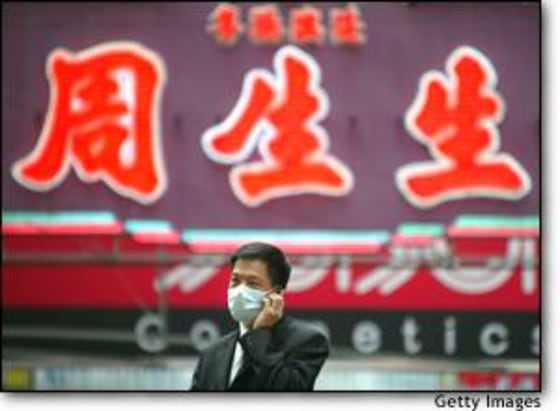Fing Chen, a graduate student at Purdue University, has cancelled her airplane tickets to go home to China later in April. But she is still planning her wedding in China in June. Yet, Chen worries the mysterious flu-like illness plaguing her country may not be contained by then and fears she could have a problem re-entering the United States if she goes home.
“I am a bit paranoid,” Chen said. “So close to finishing my degree, I just do not want to do anything that may jeopardize my career.”
Chen is one of thousands of Asian students in the United States feeling unsure about traveling home to their native countries after school lets out this summer because of the severe acute respiratory syndrome, or SARS, spreading through Asia.
The Centers for Disease Control and Prevention is warning against non-essential travel to China, Hong Kong, Vietnam and Singapore because of the mysterious pneumonia-like illness.
UNIVERSITIES BEGIN TO TAKE ACTION
Approximately 74,000 students from China and 7,000 students from Hong Kong are enrolled in American universities, according to the Bureau of Citizenship and Immigration Services, part of the Department of Homeland Security.
Many Asian students in the United States remain unsure about how they will spend their summer. Universities are in the process of developing policies about what guidance they should give students and how to accommodate them with housing and employment when they stay here.
Some universities are beginning to inform students about travel advisories and options while others are taking a wait-and-see attitude.
The Georgia Institute of Technology, in Atlanta, is offering counseling and support services to students who are natives from SARS areas to help them decide what to do in case they have to change their work and holiday plans. In late March, Georgia State University, also in Atlanta, sent students an email from the provost advising them against visiting the affected countries for work or vacation.
But Michael Brezinksi, director of the office of international students at Purdue University, West Lafayette, Ind., said: “We are still in the process of assessing the situation and waiting for the right moment to pass on the CDC advisory and additional tips to students on what to do and not to do in this situation.”
“We will get involved in this if CDC wants us to pass along certain kind of information to all American universities,” said Tim McDonough of the American Council on Education, a group representing higher education institutions. “We are monitoring the events at this point.”
MANY NOT GOING HOME
Regardless of university actions, many Asian students are canceling plans to go home and believe universities should help them out. Sou Cheng Choi, president of the Association of Students from Hong Kong at Stanford University, in Palo Alto, Calif., says he wants the university administration to disseminate information among students and to support students who find themselves running out of money during the summer.
Choi had planned to visit Hong Kong and attend conferences there in the summer, but is considering not going now. Her parents live near an area of Hong Kong that has reported cases of the flu-like illness.
Qin Pian, an undergraduate student in computer technology at the University of Wisconsin, worries about her family and friends in Hunan province in China.
“I call them so often,” she said, but probably will not go home this summer. “I will stay back in the U.S. and do an internship (here) this summer, if I can find one,” she said.
Yet other Asian students are not worried about traveling. Jian Hong Kuan, a Chinese graduate student of material science at the University of Wisconsin at Madison, said he worried about his family when reports initially came out.
“But these days when I call my father, he is more relaxed about it.” Kuan said. He is not going to change his plans to go home and is optimistic health officials in China will get on top of the outbreak.
U.S. government officials say they will evaluate any students returning to the United States as they would anyone from the affected countries.
“We will monitor the situation and take actions as necessary,” said Kimberly Weissman, a spokesman for U.S. Customs and Border Protection.
Chen hopes life will return to normal by the summer so she can go to China for her planned wedding.
“My province is very far away from the place where the atypical pneumonia cases have been found,” she said. “My family says it is absolutely okay for me to go there.” But she remains unsure about what she will do.
